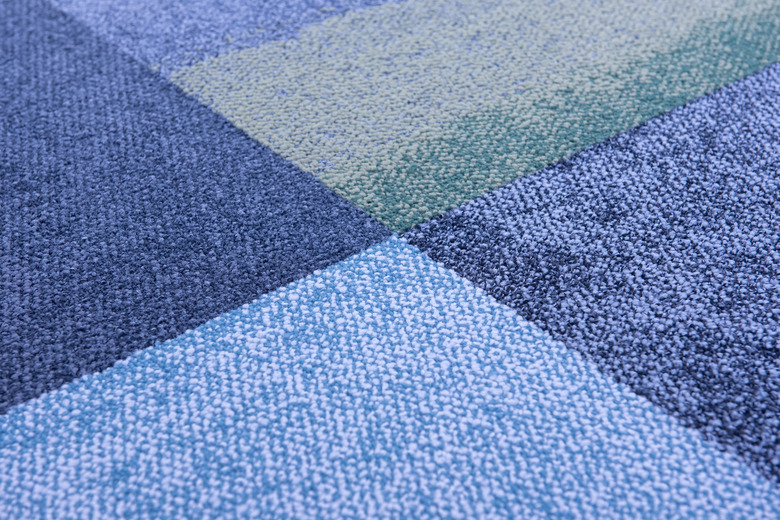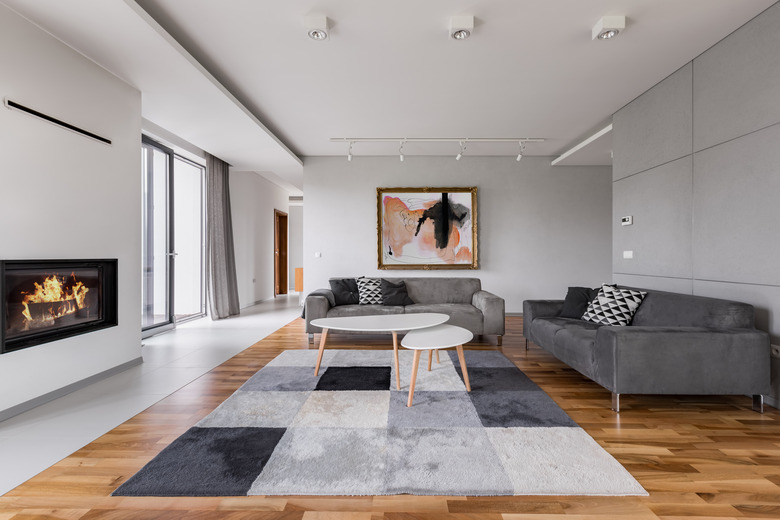Interlocking Carpet Tiles: A Homeowner's Flooring Guide
Interlocking carpet tiles are a versatile DIY flooring choice that are both inexpensive and easy to install. This simple flooring system can be put in very quickly, making it a great choice for a variety of different areas in the home. While this material may not be as high-end as hardwood or porcelain, it can still be a great fit for some rooms. Many people use it as an alternative to traditional wall-to-wall carpeting.
What Are Carpet Floor Tiles?
What Are Carpet Floor Tiles?
Interlocking carpet tiles are exactly what you would expect when you hear the name. Designed as a bunch of carpet squares, each separate piece has puzzle-shaped edges that fit inside the receptacles on the next piece. This allows for many different types of configurations. The squares are all the same size when purchased.
This customizable flooring system also features carpet-tile-sized strips that are designed as a border to cover up any remaining edges and provide a finished look. Both the tiles and edging have a foam bottom and feature carpet fibers on the top. Carpet squares look like the interlocking foam squares that are often used in garage spaces, shops or workout areas.
Advantages of Using Carpet Tiles
Advantages of Using Carpet Tiles
One of the biggest advantages to using an interlocking carpet tile system is the fact that it is super DIY friendly. Homeowners of all abilities are able to put in this type of carpeting themselves with little or no experience in flooring installation. The tiles are uniform in size and shape, and they can be placed over existing tile flooring, vinyl and other flooring types without first removing the floor. Simply figure the carpet layout, make any cuts and place your border pieces if needed. You can also install them directly on top of a subfloor.
Another plus for carpet tile is the overall expense. While the material itself may not always be cheaper than rolls of carpet, the self-install option eliminates the costs associated with hiring a professional carpet installer. This can result in big overall savings.
Compared to wood flooring, tile and other materials there is very little prep work needed with carpet squares. No underlayment material is necessary, and the only cuts required are completed easily with a utility knife and straightedge. The carpet tiles go in quick and easy, and they come in a wide range of color options.
The simplicity of replacement and overall durability also make interlocking carpet squares appealing. If one tile has been ruined or damaged, it can simply be removed and replaced with a duplicate. This takes just a few moments since the material is not glued to the flooring below. Simply pop one out and swap in the new tile.
Disadvantages of Using Carpet Tiles
Disadvantages of Using Carpet Tiles
Although there are many reasons to choose interlocking carpet tiles for a flooring project, there can also be some disadvantages to consider when using this particular type of flooring material. For example, even though the foam backing is water resistant, it isn't designed to be placed over concrete with a high moisture content. Be sure to moisture test this type of floor first or make sure it has been properly sealed. The North American Laminate Flooring Association offers some basic information about moisture testing.
Keep in mind that installing the carpet squares over hardwood may not always be a good choice, as the backing can sometimes cause issues with the wood surface. Also, soft carpet tiles are not suited to being installed over existing carpet, and they don't work well in a kitchen application since they have too much cushioning. The Carpet and Rug Institute recommends following the individual manufacturer's instructions for best results.
Popular Uses for Carpet Tile
Popular Uses for Carpet Tile
Many people install interlocking carpet tiles in high-traffic areas such as hallways or playrooms because they are durable. The interlocking tiles also work well as a floor mat area in an entryway or mud room. In addition, edging can be added around the border to create an area rug where needed, which can help cut down on flooring expenses in a large space.
Other places you're likely to find these interlocking floor tiles include home offices and enclosed porches. The anti-fatigue properties of the foam backing and water resistance also make this flooring option a great choice for basement areas.

